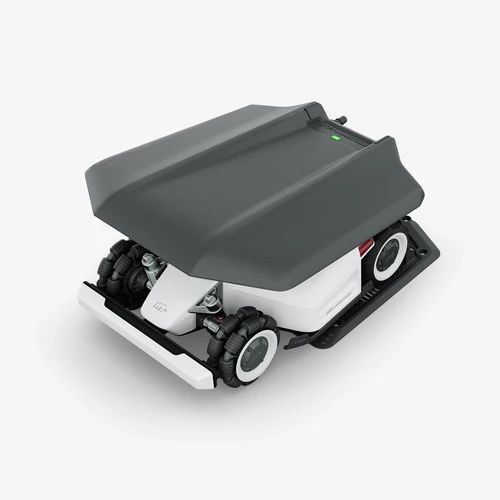As environmental consciousness grows, homeowners are increasingly seeking ways to reduce their ecological footprint, even in routine tasks like lawn care. Traditional gasoline-powered lawn mowers are known contributors to air and noise pollution, prompting a shift towards more sustainable alternatives. Among these, auto mowers stand out as a remarkably eco-friendly option, offering a blend of convenience and environmental responsibility. Understanding how these robotic devices contribute to a greener lawn and planet can highlight their value beyond simple automation.
1. Zero Direct Emissions
The most significant environmental advantage of auto mowers is their reliance on electricity. Unlike gasoline mowers that burn fossil fuels, auto mower produce zero direct exhaust emissions during operation. This means no carbon monoxide, hydrocarbons, nitrogen oxides, or particulate matter polluting the air you breathe and contributing to smog. By eliminating these harmful pollutants, auto mowers play a direct role in improving local air quality, benefiting both human health and the environment. While the electricity used to charge them might come from fossil fuel sources, the efficiency of electric motors and the potential for charging with renewable energy sources (like solar panels) significantly reduce their overall carbon footprint compared to internal combustion engines.
2. Reduced Noise Pollution
Beyond air quality, noise pollution is another significant environmental concern, especially in residential areas. Traditional gasoline mowers are notoriously loud, often exceeding 90-100 decibels, which can be disruptive to neighbors and wildlife. Auto mowers, conversely, operate at remarkably low noise levels, typically ranging from 55 to 65 decibels – comparable to a normal conversation or a quiet dishwasher. This substantial reduction in noise pollution allows them to operate at any time of day or night without causing disturbance, fostering a more peaceful neighborhood environment and minimizing stress on local fauna.
3. Natural Fertilization Through Mulching
Almost all auto mowers are designed to “mulch” the grass clippings. This means the mower’s blades finely chop the clippings into tiny pieces and return them directly to the lawn. This practice offers a powerful ecological benefit:
- Nutrient Cycling: The finely mulched clippings decompose quickly, releasing essential nutrients like nitrogen, phosphorus, and potassium back into the soil. This acts as a natural, slow-release fertilizer, reducing or even eliminating the need for chemical fertilizers.
- Improved Soil Health: The added organic matter enhances soil structure, improves water retention, and promotes a healthy microbial ecosystem in the soil, leading to a more robust and resilient lawn.
- Waste Reduction: Mulching eliminates the need to bag and dispose of grass clippings, reducing landfill waste and the energy associated with its transportation.
4. Optimized Energy Consumption
Auto mowers are designed for energy efficiency. Their frequent, light cuts require less power than a single, heavy cut from a traditional mower. They also return to their charging station automatically when their battery is low, ensuring they only consume power when needed. Many models feature smart charging capabilities, further optimizing energy use. This efficient operation, combined with the fact that they run on electricity, makes them a more sustainable choice for lawn maintenance.
5. Less Chemical Dependency
By promoting a healthier, denser lawn through frequent mulching and reduced compaction, auto mowers contribute to a lawn that is naturally more resistant to weeds, pests, and diseases. A strong, thriving turf can outcompete weeds for resources, potentially reducing or eliminating the need for herbicides and pesticides. This minimizes the introduction of harmful chemicals into your yard and local water systems, protecting biodiversity and ecosystem health.
In conclusion, an auto mower is far more than just a convenient gadget; it’s a powerful tool for fostering an eco-friendlier approach to lawn care. From eliminating direct emissions and noise pollution to promoting natural fertilization and reducing chemical dependency, these robotic assistants offer a sustainable path to a beautiful and healthy lawn.


